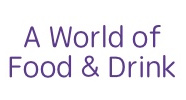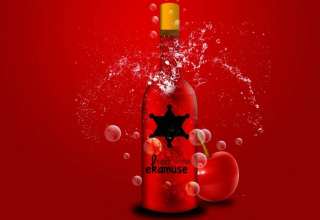Riesling goes with the piano, and Malbec demands an organ. But can you really match wine and music? By Adam Lechmere
The connection between wine and music is a subject that has been debated for centuries. At every level, from intellectual to physical, wine and music – and food – have been associated. Sixteenth-century composers would create symphonies to accompany feasts; three centuries later the Italian Futurists experimented with sound and food, serving frogs’ legs to the noise of croaking, and so on. Wine’s connection to music is even more elemental: early musicians were frequently paid in wine, and ancient records suggest new organs would be initiated by having wine poured into their pipes.
The relationship is discussed both at classical and popular level. In London recently a trio of musicians from the Philharmonia Orchestra played Debussy to a group of wine lovers, with the specific aim of contrasting the wines of the Piedmont estate Gaja with the lush pastoral music of the composer.
To stir the emotions
“Tonight we’re going to be submitting ourselves to two forces to stir the emotions. In the first place we have the ethereal beauty and grace of Gaja’s wines, then the haunting loveliness of Debussy,” said Alexandra Tilling of the wine importer Armit, which organised the evening.
For Gaia Gaja, who (along with her sister and brother) runs the Barbaresco house her great-great-grandfather founded in 1859, music and wine have much in common. Just as the musician interprets the notes on the page, it’s the job of the winemaker to interpret the land – the “terroir”, in the near-untranslatable French word. “It means soil and climate, but it also means the soul and personality of the land,” Gaja said. “Animals have it, and so does land.”
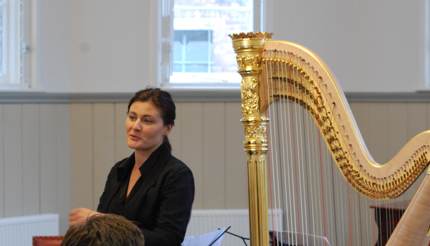
Samuel Coles, principal flute at the Philharmonia, highlighted the interpretive nature of what he did. “Interpretation is inventive, like painting. Music functions at several levels. There’s the technical level, which is objective, and then there’s the interpretative level which is subjective.”
It is not just classical musicians who have pointed out these similarities. Jay Boberg, who as the founder of IRS Records signed some of the seminal bands of the 1970s and 80s, now makes Pinot Noir in Burgundy.
The blending room is like the mixing desk
“Music is primarily an emotional form,” he told World Travel Guide earlier this year. “Sure you can talk about it intellectually – the style and the words and technique, but you appreciate it at an emotional level. And then during the creative process there are the myriad decisions to be made in music – the instruments, the drums, when does this instrument come in and so on. It’s the same for wine – decisions in the vineyard, managing the leaf canopy, when to pick, how the blend is made. The blending room is like the mixing desk. I would never have guessed the number of correlations.”
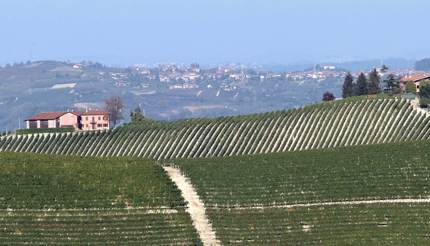
Another advocate of wine and music pairing is the Champagne house Krug, which recently commissioned a piece from jazz musician Jacky Terrasson to coincide with the release of the 21st edition of their Krug rosé. At a sensory-packed lunch in the forest as part of their Krug World Festival participants tasted the wine, then put on headphones that were playing Terrasson’s uptempo composition. “On its own the Champagne seemed quite austere to begin with, begging for food, but the music seemed to bring out an altogether fruitier character,” said wine and food matching specialist Fiona Beckett.
That wine and music affect the emotions is obvious, but does music have an effect on how the wine is perceived – or how it can develop during in the cellar? There are many scholarly studies that set out to prove how sound waves can alter the behaviour of yeast in the barrel.
There are dozens of winemakers who play music to their wines as they mature in the cellar – and one or two who have set up speakers in the vineyards. The Tuscan winemaker Giancarlo Cignozzi plays Mozart to his vines in the belief that the frequency of the music resembles that of running water. It sounds fanciful, but the plangent notes of Debussy’s Sonata for Flute, Viola and Harp certainly put me in mind of the lovely rolling hills of Barbaresco. Had I been a vine, I would have been thinking about a sinuous stream flowing by my endpost.
I just can’t get enough
As for the wine as you experience it, the evidence suggests an immutable link between what you hear and what you taste.
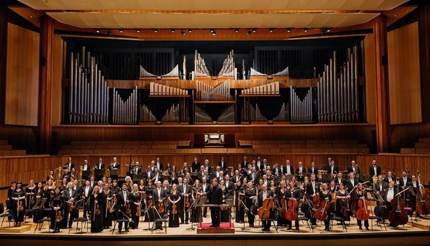
In a 2011 study at Heriot-Watt university, participants were played different musical styles and then asked to rate the wines they tasting on a scale of heavy to light. Different groups tasted the same wines to music ranging from “powerful and heavy” (Carl Orff’s Carmina Burana) to “zingy and refreshing” (I Just Can’t Get Enough by Nouvelle Vague). The results showed that the music had a consistent effect: participants tended to think their wine had the qualities of the music they were listening to. So, for example, both the red and white wines were given the highest ratings for being powerful and heavy by those participants who drank them to the tune of Carmina Burana.
Heriot-Watt’s conclusion? “Background music influences the taste of wine. The specific taste of the wine was influenced in a manner consistent with the mood evoked by the music.” Is there any concrete link? “As always with wine, sometimes, possibly yes, mostly, probably not,” says professor Florian Bauer of the Institute of Wine Biotechnology at Stellenbosch University.
The problem is that it’s unprovable. Just as we know certain foods go better with certain styles of drink (who would match kippers and hot chocolate, after all?), it seems obvious that light wines will go better with lighter musical styles. You’d choose Sierra Nevada APA rather than a Riesling at an Iron Maiden gig, wouldn’t you – but why?
Atmosphere and mood
For some, it’s just about atmosphere and mood. The wine critic, broadcaster and singer Oz Clarke is running a series of wine and music evenings with orchestra and choir the Armonico Consort. The debut, at the Harrogate International Festival this month, matched Hildegard of Bingen with Schloss Vollrads Riesling, and Purcell with English Sparkling wine.
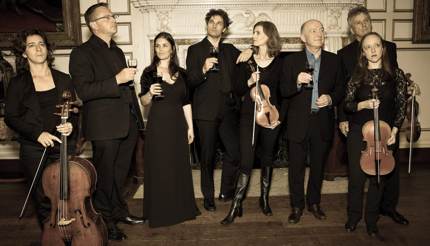
“As for the science behind it, I don’t know. It’s a bit like the darker reaches of food and wine matching,” Clarke told World Travel Guide. “Music is trying to find words for something for which there are no words, and wine is the same. We’re trying to entwine those two emotional responses.”
And in the end, everyone has a wonderful time. “The basic truth is that wine tastes better if you’re in a good mood, and music certainly enhances your mood. During the concert we make sure everyone has a drink in their hand. If I see someone not drinking I stop the concert and say, ‘Excuse me, you there at the back, where’s your glass?’ They absolutely love it.”

